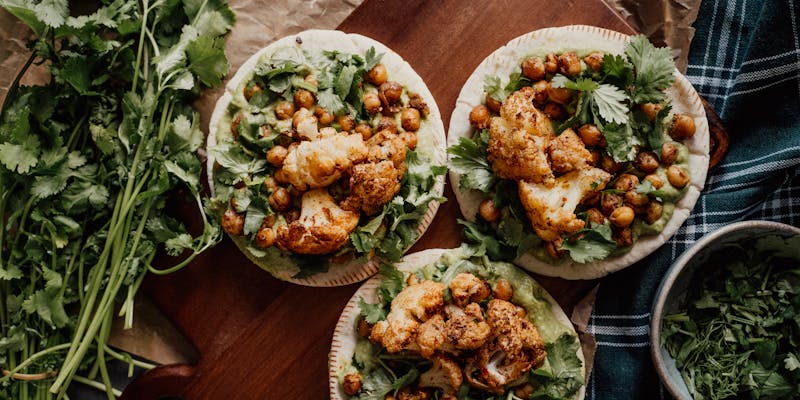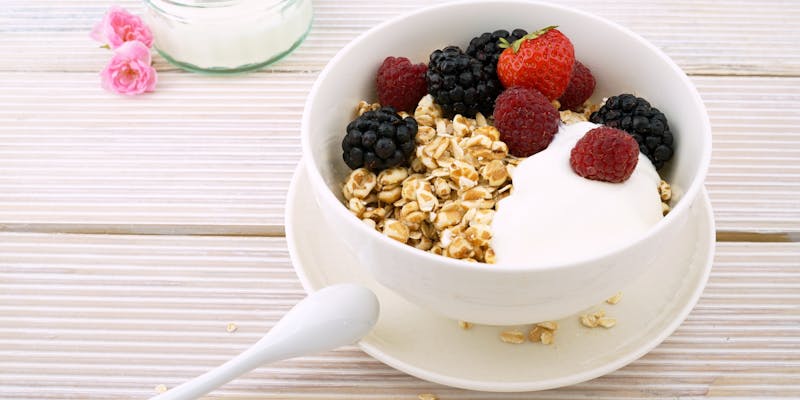Advertisement
The Ultimate Guide of 15 Dietitian-Recommended Foods for Building Mass
Mar 08, 2024 By Madison Evans
Muscle maintenance is essential to keep an active, healthy lifestyle at any age. The role of nutrition in muscle growth appears to be highly scientific. A well-balanced diet can include any food, but certain meals are healthier for our bodies than others, particularly when achieving specific body composition objectives.
Eating enough protein and high-quality carbs is crucial if your goal is to gain muscle. So, which foods are effective in a diet for muscle gain? Several options are available to you, but we've compiled a list of the top 15 foods for building muscles. Let's get started!
Top 15 Muscle-Building Foods

It's the training stimulus that stimulates muscle growth. The purpose of calories and carbohydrates is to supply the body with the proper fuel for exercise and to stop it from converting protein, or your muscle tissue, into stored energy.
Eggs
A quick and straightforward way to get protein is by eating whole eggs, which is necessary for muscle growth and repair after exercise. The steroid hormones and their scaffolding are made possible by the cholesterol present in egg yolks. Each egg's five grams of leucine is like adding petrol to a fire that is burning to develop muscle.
Salmon
Salmon contains a significant amount of complete protein, 20g per 100g serving, as well as high levels of the omega-3 fatty acids EPA, which reduce inflammation and optimize nutritional partitioning. Because omega-3 promotes insulin sensitivity, your bloodstream contains less insulin overall. Moreover, insulin promotes fat accumulation.
Soy Beans
Soybeans are the best option if you want to gain muscle that is lean and green. Unlike other vegetarian protein sources, these tiny beans are a vital vegan muscle fuel since they contain all nine essential amino acids. Soy is the main ingredient in tofu, tempeh, and other vegetarian meat substitutes.
Pineapple
It is the only known meal that contains the protein-digesting enzyme bromelein. Because pineapple contains bromelain, which breaks down the skin inside your mouth, eating pineapple can often be challenging. Moreover, its anti-inflammatory qualities will lessen soreness, swelling, and pain following exercise.
Greek Yogurt
Greek yogurt has a lot of proteinroughly 10 grams total per 100g servingboth slow-digesting casein and fast-digesting whey. It also contains vitamin D, which aids in the body's absorption of calcium and phosphorus. Phosphorus is necessary for ATP synthesis, but calcium is needed for muscular contractions.
Kidney Beans
Beans and legumes, which have a more extensive carb content than their leaner counterparts, are sometimes disregarded. However, you need a healthy gut to absorb the nutrients, minerals, and supplements needed to build skeletal muscle. Thus, these fiber foods are crucial for gut health.
Lean Beef
Beef muscle food, when used in moderation, can be a valuable training help. Lean beef has a high zinc content and 26 grams of protein per 100g, or about the size of a burger patty. This vitamin speeds up your body's recovery after physical activity.
Whey Protein
Many studies have shown that whey is an effective protein powder for growing muscle, earning it the title of king of protein powders. Because whey protein contains amino acids that are essential for both muscle growth and maintenance, it is a fast-absorbing protein that is best consumed after an exercise.
Potatoes
Given that potatoes are frequently avoided in diet circles due to their starchy nature. Protein from potatoes is similar to that from brown rice, wheat, and peas. Potato protein is the most abundant common plant protein in terms of necessary amino acids when expressed as a proportion of total protein.
Oysters
Although they may not be the most well-known food for building muscles, oysters have a unique nutritional profile, with up to 20 grams of protein and five grams of fat per 100g. Over eight times as much iron and nearly fifty times as much zinc (5.3 mg per medium-sized mollusk) are found in oysters compared to chicken.
Chickpeas
Chickpeas made the list of foods that build muscle because of their excellent protein content as well as their adaptability. Chickpeas contain calcium, magnesium, potassium, and folate. The study also demonstrates how low levels of calcium and magnesium may affect skeletal muscle function and exercise capacity.
Quinoa
It is one of the few plant-based sources of protein with nine essential amino acids and the additional nutrients magnesium, phosphorus, vitamin E, and B vitamins. More than eight grams of protein can be found in one cup of cooked quinoa. Eat it warm or cold, tossed into a salad.
Spinach
Nitrates, which are present in spinach, have been shown to provide health benefits in small quantities. Spinach nitrates activate two proteins in the body that aid in the release of calcium. Increases in these proteins cause the body to produce more calcium, which aids in muscle contraction and, eventually, increases the muscle's strength and tone.
Cottage Cheese

One of the greatest foods for building muscle is cottage cheese, even though you might not think to eat a lot of it right after working out. Dairy products (milk, cottage cheese, yogurt, and all cheeses) contain high-quality protein. It has all of the essential amino acids that the body needs, plus calcium, which helps to build and promote muscular contraction.
Conclusion
In order to increase muscle mass and function, diet and exercise are complementary to each other. You can develop muscle to feel stronger, move more fluidly, and lead an active lifestyle at any age by adopting a balanced diet that includes essential foods for building muscle and regular exercise, with a concentration on strength training. Incorporating these 15 muscle-building foods into your diet can help support your fitness goals and promote overall health.







